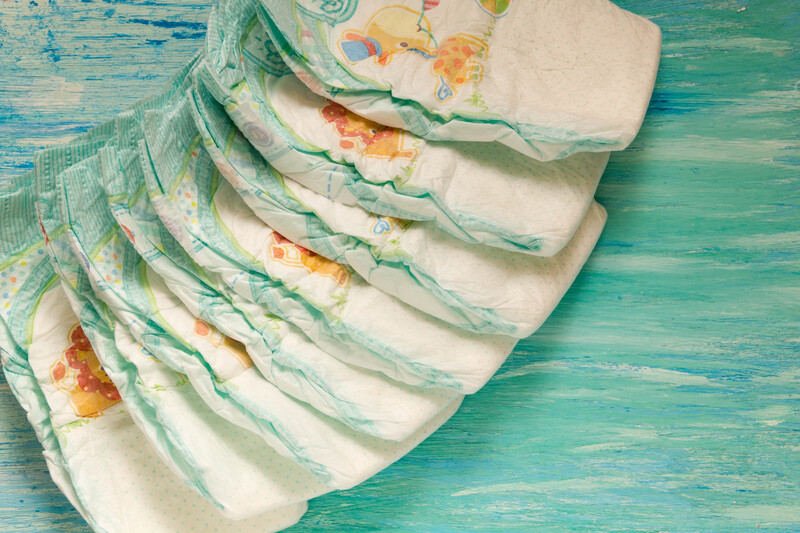Money-Wise Methods for Clearing Out Bulky Waste Items
Dealing with bulky waste items such as old furniture, appliances, and large piles of debris can be overwhelming. Not only do these items take up precious space, but their removal often comes with unexpected expenses. If you're facing this challenge, you've likely asked yourself: How can I clear bulky waste items without breaking the bank? This comprehensive guide provides cost-effective, eco-conscious, and practical solutions to help you efficiently clear large junk from your property, all while keeping your finances in check.
Understanding Bulky Waste and Why It's a Problem
Before exploring money-wise methods for clearing bulky waste, it's crucial to understand what counts as bulky waste. These are large items that are too cumbersome for regular trash services and can include:
- Old sofas and armchairs
- Mattresses and bed frames
- Household appliances (fridges, washing machines)
- Exercise equipment
- Construction materials
- Garden waste (branches, tree stumps)
Bulky waste, if left unattended, can lead to mess, safety hazards, and even fines from local authorities. With the right strategies, however, you can dispose of these items affordably and efficiently.

Top Money-Saving Strategies for Bulky Waste Removal
1. Utilize Your Municipality's Free or Low-Cost Collection Services
Many cities and towns offer free or inexpensive bulky waste collection services, especially for residential customers. Here's how to make the most of these programs:
- Check your city's website for scheduled pick-up days or required appointments.
- Understand the accepted items and preparation guidelines -- some items must be disassembled or bundled.
- Book early: these services can book up quickly, especially in peak seasons.
- If you rent, ask your landlord or building manager if they offer occasional bulk waste pick-ups.
2. Donate Gently Used Items to Charities
Donating is among the most eco-friendly and money-wise ways to dispose of bulky waste items. Many charities accept furniture, appliances, and other large household goods. Some even offer free pickup services!
- Contact organizations like Habitat for Humanity ReStores, Goodwill, The Salvation Army, or local shelters.
- Ensure your items are in good, working condition -- charities generally don't accept items that are broken or excessively worn.
- Ask for a donation receipt; this can often be used for tax deductions if you itemize returns.
3. Sell Valuable Bulky Items for Extra Cash
If your large items are in salable condition, why not turn them into cash?
- Use platforms like Facebook Marketplace, Craigslist, OfferUp, or local neighborhood apps to advertise.
- Set realistic prices and provide measurements and clear photos.
- Promote "buyer must haul" so you don't have to arrange transportation.
- Organize a weekend garage or yard sale for a one-stop clearance event.
4. Repurpose or Upcycle Bulky Waste
Before tossing that old armoire or headboard, consider creative reuse:
- Turn wooden furniture into garden planters or shelves.
- Repurpose drawers as storage bins or wall-mounted organizers.
- Convert broken appliances into quirky decor or spare parts for DIY projects.
5. Use Bulk Waste Drop-Off Centers
Many regions have designated drop-off points for large items. While some sites charge small fees, these are often less than hiring a private junk removal company.
- Search your city or county website for dump or recycling center locations and accepted items.
- Check operating hours and whether proof of residency is required.
- If you don't have a suitable vehicle, consider borrowing or renting a truck with friends or neighbors to split costs.
Save More by Organizing Group Disposal Efforts
Why go it alone? If your neighborhood is facing bulky waste issues, organize a group disposal event:
- Coordinate with neighbors for a shared dumpster or joint bulk pickup -- splitting costs makes it more affordable for everyone.
- Contact local junk removal firms for group discounts.
- Arrange for a community swap or sell day to help items find new homes before disposal.
What to Avoid: Costly Mistakes in Bulky Waste Disposal
While focusing on economical solutions for getting rid of large junk, steer clear of these common pitfalls:
- Illegal Dumping: Leaving items in unauthorized areas can result in hefty fines and legal trouble.
- Overpaying for Junk Removal: Always compare quotes and check reviews before hiring a company.
- Ignoring Recycling Options: Many items, like electronics and metals, can be recycled for free if taken to the right facilities.
- Leaving Items Curbside Without Authorization: This can lead to city violations or unsightly streets.
Junk Removal Services: How to Choose Cost-Effectively
Sometimes, professional help is inevitable. To find budget-friendly bulky waste removal services, follow these guidelines:
- Get at least three quotes from licensed and insured companies.
- Ask if they charge by item, volume, weight, or time -- and clarify what's included.
- Check for discounts for seniors, veterans, or first-time customers.
- Ask about eco-friendly practices -- some companies recycle or donate as part of their service.
- If possible, bundle items for removal on a single day to save on repeated service fees.
Renting a Dumpster: When Does It Make Sense?
A dumpster rental can be the most cost-effective way to remove large amounts of bulky waste, especially during major renovations or cleanouts. Here's what to consider:
- Choose the correct size -- overestimating means unnecessary costs, underestimating leads to overage fees.
- Get flat-rate pricing to avoid surprises from weight or time overruns.
- Share the rental -- coordinate with neighbors or friends to split the expense.
- Ensure you have space and required permits to place a dumpster on your property or street.
Disposal of Hazardous Bulky Items
Some large waste items require special handling:
- Appliances with refrigerants (fridges, freezers): Must be drained by certified professionals.
- Electronics (TVs, computers): Take to e-waste recycling centers.
- Car batteries, tires, or paint cans: Dispose of at designated hazardous waste facilities.
Eco-Friendly, Money-Wise Tips for Clearing Bulky Waste
Combine affordability with environmental responsibility:
- Prioritize reusing, repairing, or donating before discarding.
- Sort items for recycling wherever possible -- this can sometimes offset disposal costs.
- If hiring help, choose companies with a track record of landfill diversion.

Quick Checklist: How to Clear Out Large Junk Economically
- Assess what can be donated, sold, or repurposed before paying for disposal.
- Research free or low-cost municipal services.
- Join forces with neighbors for shared solutions.
- If hiring, always compare rates and service reviews.
- Dispose of hazardous items properly -- never mix with standard waste.
- Stay organized: group similar waste to minimize trips or pickups.
Conclusion: Clear Bulky Waste Without Overspending
Clearing out bulky waste items doesn't have to be expensive or stressful. With the strategies shared here -- from municipal pick-ups, donating, and reselling, to upcycling and group action -- you can find a money-wise, responsible approach that fits your needs. Always take a moment to evaluate each item's potential value, reuse possibilities, and the available disposal options in your area.
By taking the time to plan large junk removal carefully, you're not only thinning out your clutter -- you're saving money, supporting local charities, and contributing to a cleaner environment.
Ready to tackle your bulky waste? Use the tips in this guide to clear space the smart, budget-conscious way -- and enjoy a clutter-free, organized home without unnecessary expense!
